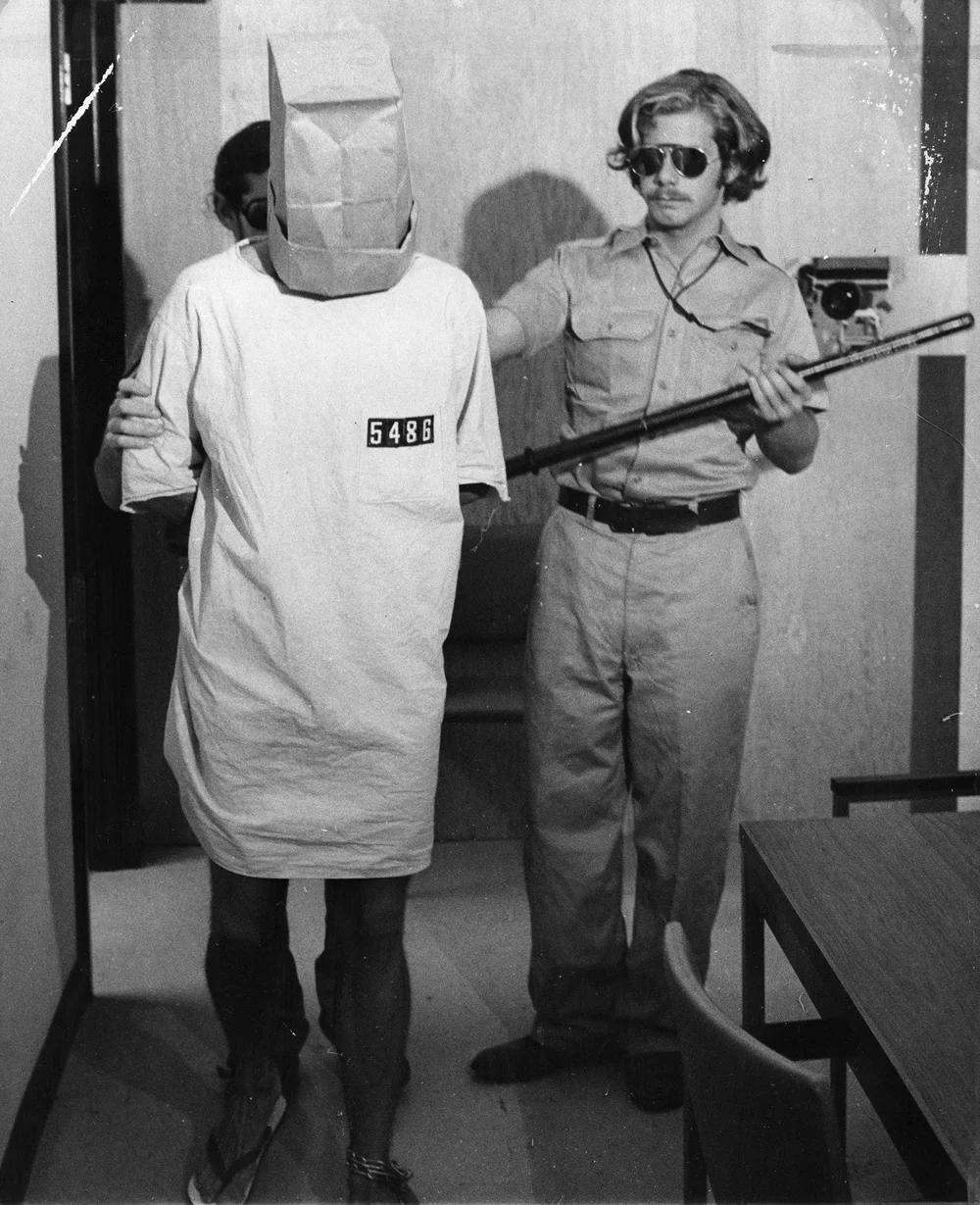Go offline with the Player FM app!
The Beast Inside Us All (SPE II)
Archived series ("Inactive feed" status)
When?
This feed was archived on November 23, 2023 20:07 (
Why? Inactive feed status. Our servers were unable to retrieve a valid podcast feed for a sustained period.
What now? You might be able to find a more up-to-date version using the search function. This series will no longer be checked for updates. If you believe this to be in error, please check if the publisher's feed link below is valid and contact support to request the feed be restored or if you have any other concerns about this.
Manage episode 216482390 series 1207705
M.C. Escher, Circle Limit IV. From Wikimedia: https www.wikiart org:en:m-c-escher:circle-limit-iv

Participants of the SPE

One example of the prisoner abuse at Abu Ghraib


Bo and I discuss a debate that's existed in science for...what seems like forever. Is everyone capable of the types of atrocities that occurred throughout history, like the prisoner abuse at Abu Ghraib? Philip Zimbardo, the primary researcher who led the Stanford Prison Experiment, posted a defense of his study, and we use it as a framework to discuss what we know - and, more importantly - don't know about human behavioral predispositions.
We also updated our recording set-up, so I hope you'll excuse any audio weirdness as we go through growing pains.


Literature referenced:
- LUIGI BARZINI, author of “The Italians”; ROME. (1973, March 25). How Pirandello Became Pirandellian (And Other Things). Retrieved from https://www.nytimes.com/1973/03/25/archives/how-pirandello-became-pirandellian-and-other-things-barzini-on.html
- Heirs of Pirandello. (1999, March 10). Retrieved from https://www.theguardian.com/theguardian/1999/mar/10/features11.g26
- Philip Zimbardo's Response to Recent Criticisms of the Stanford Prison Experiment. (n.d.). Retrieved August/September, 2018, from http://www.prisonexp.org/response/
- Haney, C., Banks, C., & Zimbardo, P. (1973). Interpersonal Dynamics in a Simulated Prison Study, circa 1973. Retrieved August/September, 2018, from https://exhibits.stanford.edu/spe/catalog/fb081wn8980
- Zimbardo, P. (2008, September). Retrieved August/September, 2018, from https://www.ted.com/talks/philip_zimbardo_on_the_psychology_of_evil?language=en
- Stanford Prison Experiment: Prisoner 8612's Emotional Breakdown. (2018, June 26). Retrieved August/September, 2018, from https://www.youtube.com/watch?v=kXOM8IK4HOs
27 episodes
Archived series ("Inactive feed" status)
When?
This feed was archived on November 23, 2023 20:07 (
Why? Inactive feed status. Our servers were unable to retrieve a valid podcast feed for a sustained period.
What now? You might be able to find a more up-to-date version using the search function. This series will no longer be checked for updates. If you believe this to be in error, please check if the publisher's feed link below is valid and contact support to request the feed be restored or if you have any other concerns about this.
Manage episode 216482390 series 1207705
M.C. Escher, Circle Limit IV. From Wikimedia: https www.wikiart org:en:m-c-escher:circle-limit-iv

Participants of the SPE

One example of the prisoner abuse at Abu Ghraib


Bo and I discuss a debate that's existed in science for...what seems like forever. Is everyone capable of the types of atrocities that occurred throughout history, like the prisoner abuse at Abu Ghraib? Philip Zimbardo, the primary researcher who led the Stanford Prison Experiment, posted a defense of his study, and we use it as a framework to discuss what we know - and, more importantly - don't know about human behavioral predispositions.
We also updated our recording set-up, so I hope you'll excuse any audio weirdness as we go through growing pains.


Literature referenced:
- LUIGI BARZINI, author of “The Italians”; ROME. (1973, March 25). How Pirandello Became Pirandellian (And Other Things). Retrieved from https://www.nytimes.com/1973/03/25/archives/how-pirandello-became-pirandellian-and-other-things-barzini-on.html
- Heirs of Pirandello. (1999, March 10). Retrieved from https://www.theguardian.com/theguardian/1999/mar/10/features11.g26
- Philip Zimbardo's Response to Recent Criticisms of the Stanford Prison Experiment. (n.d.). Retrieved August/September, 2018, from http://www.prisonexp.org/response/
- Haney, C., Banks, C., & Zimbardo, P. (1973). Interpersonal Dynamics in a Simulated Prison Study, circa 1973. Retrieved August/September, 2018, from https://exhibits.stanford.edu/spe/catalog/fb081wn8980
- Zimbardo, P. (2008, September). Retrieved August/September, 2018, from https://www.ted.com/talks/philip_zimbardo_on_the_psychology_of_evil?language=en
- Stanford Prison Experiment: Prisoner 8612's Emotional Breakdown. (2018, June 26). Retrieved August/September, 2018, from https://www.youtube.com/watch?v=kXOM8IK4HOs
27 episodes
All episodes
×Welcome to Player FM!
Player FM is scanning the web for high-quality podcasts for you to enjoy right now. It's the best podcast app and works on Android, iPhone, and the web. Signup to sync subscriptions across devices.




